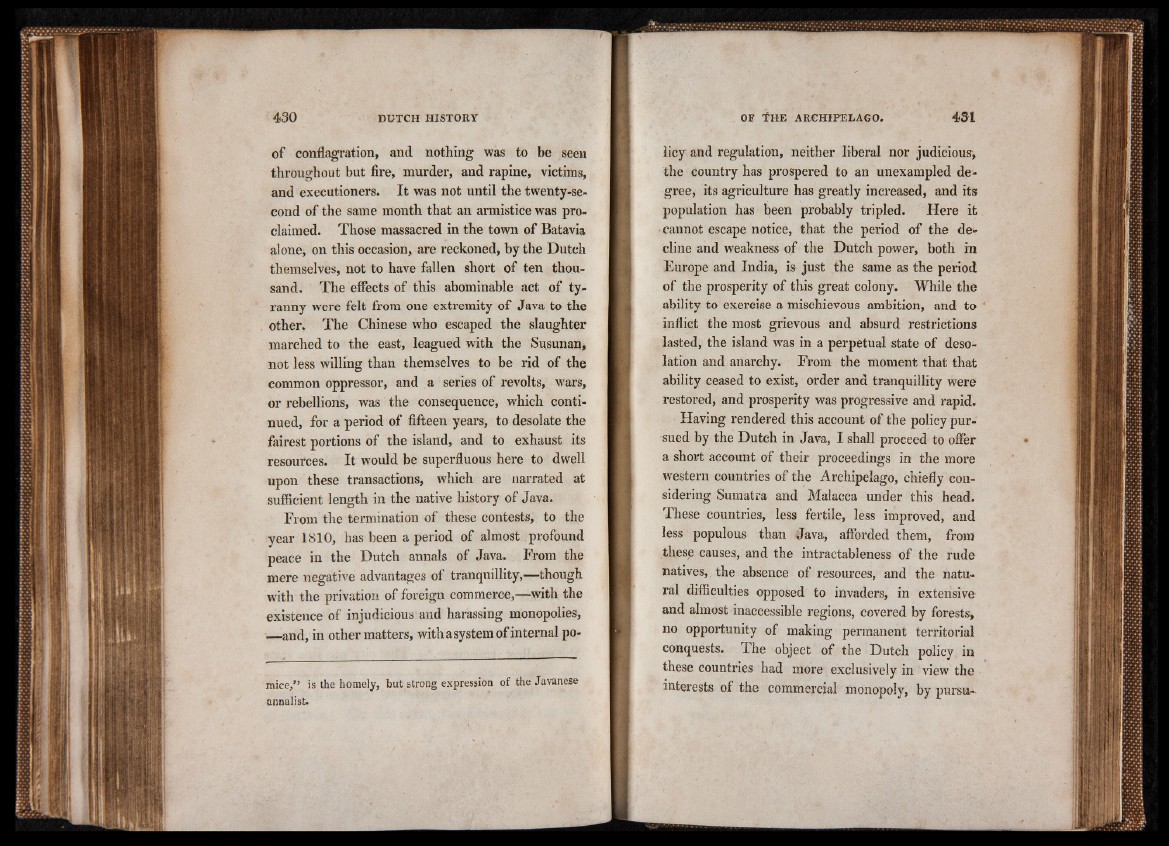
of conflagration, and nothing was to be seen
throughout but fire, murder, and rapine, victims,
and executioners. It was not until the twenty-second
of the same month that an armistice was proclaimed.
Those massacred in the town of Batavia
alone, on this occasion, are reckoned, by the Dutch
themselves, not to have fallen short of ten thousand.
The effects of this abominable act of tyranny
were felt from one extremity of Java to the
other. The Chinese who escaped the slaughter
marched to the east, leagued with the Su,sunan,
not less willing than themselves to be rid of the
common oppressor, and a series of revolts, wars,
or rebellions, was the consequence, which continued,
for a period of fifteen years, to desolate the
fairest portions of the island, and to exhaust its
resources. It would be superfluous here to dwell
upon these transactions, which are narrated at
sufficient length in the native history of Java.
From the termination of these contests, to the
year 1810, has been a period of almost profound
peace in the Dutch annals of Java. From the
mere negative advantages of tranquillity,—though
with the privation of foreign commerce,—with the
existence of injudicious and harassing monopolies,
—and, in other matters, with a system of internal pomice,”
is the homely, but strong expression of the Javanese
annalist.
licy and regulation, neither liberal nor judicious,
the country has prospered to an unexampled degree,
its agriculture has greatly increased, and its
population has been probably tripled. Here it
cannot escape notice, that the period of the decline
and weakness of the Dutch power, both in
Europe and India, is just the same as the period
of the prosperity of this great colony. While the
ability to exercise a mischievous ambition, and to
inflict the most grievous and absurd restrictions
lasted, the island was in a perpetual state of desolation
and anarchy. From the moment that that
ability ceased to exist, order and tranquillity were
restored, and prosperity was progressive and rapid.
Having rendered this account of the policy pursued
by the Dutch in Java, I shall proceed to offer
a short account of their proceedings in the more
western countries of the Archipelago, chiefly considering
Sumatra and Malacca under this head.
These countries, less fertile, less improved, and
less populous than Java, afforded them, from
these causes, and the intractableness of the rude
natives,, the absence of resources, and the natural
difficulties opposed to invaders, in extensive
and almost inaccessible regions, covered by forests,
no opportunity of making permanent territorial
conquests. The object of the Dutch policy in
these countries had more exclusively in view the
interests of the commercial monopoly, by pursu